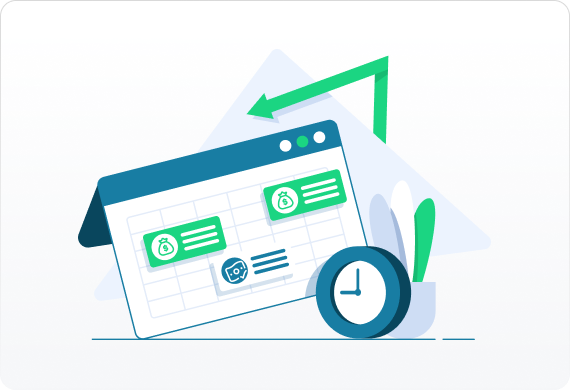After a few years of working for someone else – whether it was during your apprenticeship or for the years after – it’s time to open your own business. Maybe you think you could make more money than going out on service calls where your boss takes half – or more – of the fee. Or, you already own an electrician company but can’t keep up with the demand.
The market size for electricians is $202.3 billion in 2021, and expected to increase 3%. The US electrical contracting industry includes more than 70,000 businesses, so most newcomers won’t face heavy competition from large businesses. Electricians are expected to benefit from overall predicted growth in the construction industry of 85% by 2030. Now is the time to strike out on your own or grow your electrical contracting business.

Below is a list of the requirements to get approved for business funding with our most basic program.

Applying has never been easier. You can either call our toll free number 24 hours 7 days a week at
or
Submit your online application by clicking apply below and entering a few basic details about your business.
Working capital is the money you have available to pay for daily expenses such as rent or payroll. These funds keep the lights on and the doors open.
To calculate available working capital, take the current assets on your balance sheet and subtract current liabilities. A positive balance means that you can pay all the liabilities likely to come due in the next 90 days. Most financial advisors advise having two times the amount of current liabilities available to your business at any point in time.
For many small businesses, particularly in the first year of operations, it’s hard to keep this much cash on hand. If you are waiting for payment on a job, but it’s time to pay your subcontractors, you might not have enough cash-on-hand.
Growing an electrical business requires taking on additional employees. While you can pay other electricians per job, office and support staff must be paid per your agreement. At a certain size, you may need to hire a full-time electrician to bid on and accept new work, but until those jobs have paid, you will not have the money to pay them. Working capital loans help manage cash flow when you’re waiting on receipts but still have bills to pay.
Typical terms for working capital loans are 12 to 26 months, which could help pay your first year’s expenses. Shield Funding requires that businesses have a minimum credit score of 650 and minimum monthly revenues of $10,000. Your interest rate will range from 9% to 45% depending on your credit score.
If you have a substantial unexpected expense or need to fund a quick project, a short term loan might be best for meeting your needs. There can be a steep learning curve when learning how to estimate job costs, and the deposit you collected might not cover upfront expenses. Taking out a short term loan to cover any gaps means that you can complete the work and receive the final payment.
A short term loan has the same costs for banks as a long-term loan. But because they make more money off long-term loans, banks are reluctant to lend for terms less than several years. Alternative lenders offer short term business loans at higher interest rates than a bank, 9% to 45%, but with terms of just six to twenty-four months. Borrowers with good credit could pay less than on a business credit card.
Shield Funding requires one year minimum in business to qualify for a short term loan, and a credit score of at least 650. Minimum monthly revenues must exceed $10,000. You can borrow as little as $15,000, and there are no prepayment penalties. If you know that you can pay off the loan quickly, a short term loan could keep your business on track.
We know that restaurants have a tough time receiving working capital because of the volatility of the industry. If you try to get a loan from a traditional lender, you’ll get denied fast. But we don’t think your industry should disqualify you from getting funding for your restaurant business.
So we offer short term merchant cash advances of up to $1,000,000 to restaurant owners with credit scores above 500. You’ll pay 12–45% interest on terms up to 36 months. As long as your restaurant has been open for a few months and you have $8,000 in monthly revenue, you can qualify.
One study of electrical contracting firms found similarities to plumbing companies. Firms with revenues under $250,000 a year make up 43% of the industry. Of those employed in the industry, 71% work at companies with less than nine employees, and 68% of firms only operate in one state. The industry favors smaller local businesses.
The workforce for electrical companies has been steadily aging and retiring, so 22% of these companies added employees in 2018. If you have been thinking of starting your own firm, you could purchase a company from a retiring electrician instead. Of those who responded to one survey, 77% of them owned their companies, and they had an average age of sixty years old. As they approach retirement, selling could be their exit strategy. The U.S. Bureau of Labor Statistics predicts that demand for skilled electricians will increase by 10% by 2028.
Electrical contractors can count on a steadily improving market and revenue growth. The impact of retirements will create opportunities for savvy entrepreneurs and investors.

Apply Directly to One Source!
Work with a direct lender and get a business loan as fast as the same day. Shield Funding offers competitive rates and terms on all it’s funding programs. Apply now with a trusted lender that has been helping business owners secure working capital for almost two decades.
Existing business owners will find it easier to get funding if they can show lenders proven success. Lenders will look at last year’s income and expenses to predict future sales and your ability to repay a loan. Your financial history will be an important part of your loan application, as will any collateral, such as parts, vans, or a physical store that you could pledge as collateral.
Assuming you’re profitable, borrowing as an existing business owner is easier, but even unprofitable businesses can borrow. If you have enough cash receipts and a business plan that clearly shows its path to profitability, alternative lenders will work with you.
Small business owners starting a new business have different funding needs. You would have to locate a building, obtain the necessary permits, and possibly invest in inventory, or purchase a van and tools. A lender could require newer business owners topledge personal assets – such as investment or retirement accounts – to secure the loan.
The stage you’re at in the business cycle will guide you to approaching the right lenders.
If you have been working as an electrician already, you will already have your personal licenses and certifications. You might only need to borrow the money for a basic set of tools and outfit a van. If you are starting small, you can buy necessary supplies as needed and invoice the customer in advance.
Once you grow, however, investing in a fully-stocked van could save you time. Skipping multiple trips to the hardware store will increase your profit margins, too. You can take on more customers if you’re not wasting time driving back and forth between job sites and an electrical supply wholesaler.
There are also state and local licenses you’ll need to start a new business. If you’re not yet licensed, requirements vary by state, but you will also have to pay a lawyer to set up your legal entity. You could fund these expenses from your personal accounts, or look into a personal loan.
Maybe your business needs access to funds for working capital needs – to make payroll or pay rent during a slow period. Working capital loans help existing business owners meet daily operating expenses.
There are multiple reasons to borrow, which is why lenders offer different types of loan products. Each loan product has a rate, requirements, and term, designed to fit the reason you’re borrowing. Getting clear on why you need to access capital will help you decide which loan fits your needs best.
Can your business’s cash flows pay your monthly loan payment and other fixed expenses, like rent or a van loan? Add up your fixed expenses – rent, utilities, and payroll – and calculate the amount of money left in your budget. If you don’t have the money to cover a loan payment, you shouldn’t take out a loan (or you should borrow less).
A loan payment consists of a portion of the amount borrowed plus interest spread over the repayment term. Therefore, borrowing less reduces your monthly payments since it reduces the base on your loan payment. Ask your lender what your estimated loan payment will be during the loan application process.
Your business’ cash flows must cover the loan payments – particularly if there is a delay between when you have to pay for a project and when it generates sales. When putting together your budget include a plan to pay back the loan. And try to plan for the unexpected, such as a customer taking an extra month to pay you or backordered parts.
The difference between the cost to complete a job and what you charge your customer is your profit margin. Every business owner should both know their margins, set goals and minimums for their profit margins, and turn down work that does not meet those criteria. Any larger project or capital investment – such as opening an electrical supply store or purchasing a van – should also generate a profit.
When calculating your profit margins on a job, don’t forget to include a portion of your fixed expenses. Allocate expenses such as rent, electrical, and staff salaries to each job one of your electricians takes. This will give you a more accurate idea of its profitability.
If you’re evaluating a potential acquisition – say, another electrician in town wants to retire and has offered the opportunity to purchase their business- take a hard look at their numbers. Would the increased sales and profit be higher than the cost of the loan to buy them out?
Any project or acquisition should turn a profit, otherwise borrowing is a bad idea.
How long will you need to use the loan’s funds? For large capital investments, apply a matching principle. The loan should be paid off near when the project is complete. It’s important to have a projected timeframe for your project before you apply for a loan.
Lenders select a typical loan repayment term for each of their loan products. With alternative lenders who offer working capital loans, this could be a few months. If you’re taking out a large business loan, expect to repay it over a few years.
A shorter repayment term means you’ll have a higher loan payment, and vice versa. It’s inadvisable to still be making payments on a loan when you’re no longer receiving the benefits of the project it funded, so apply for a loan who’s repayment term aligns.
During the loan application process, the lender looks at your personal credit score and the business’s credit history when deciding whether or not to approve your application. These factors also influence the loan’s terms and interest rates.
Before applying for a loan, small business owners should request a free copy of their credit report and check their credit score. With a score below 650, it’ll be harder to borrow from traditional lenders. To save yourself time, approach alternative lenders, instead.
Knowing your score gives you an idea of the interest rate a lender will charge. Since a lower credit score reflects higher risk to the lender, you’ll pay more to borrow.
Once you’ve thought about the top considerations for a business loan, it will be easier to identify the type of loan that best meets your needs.

